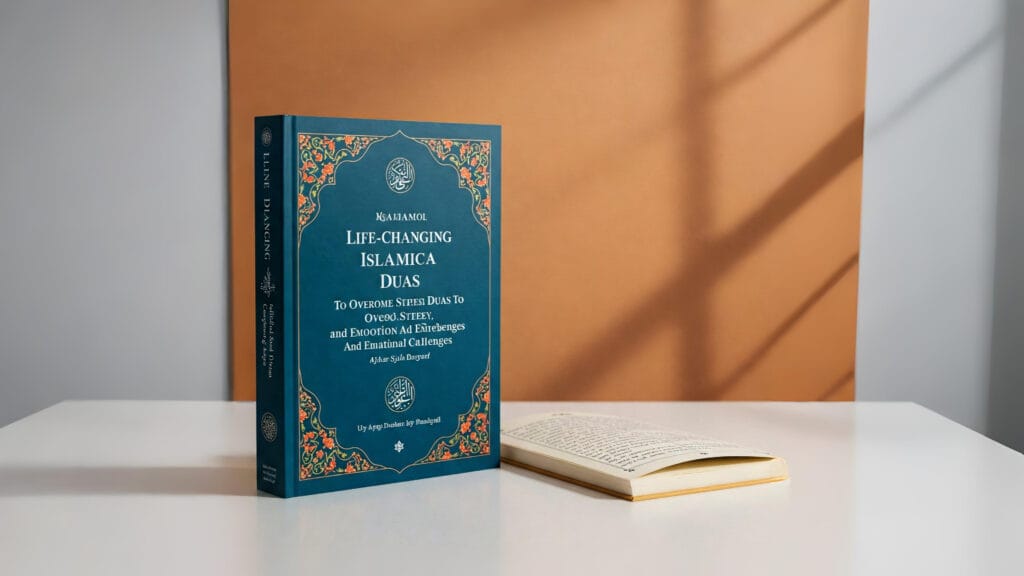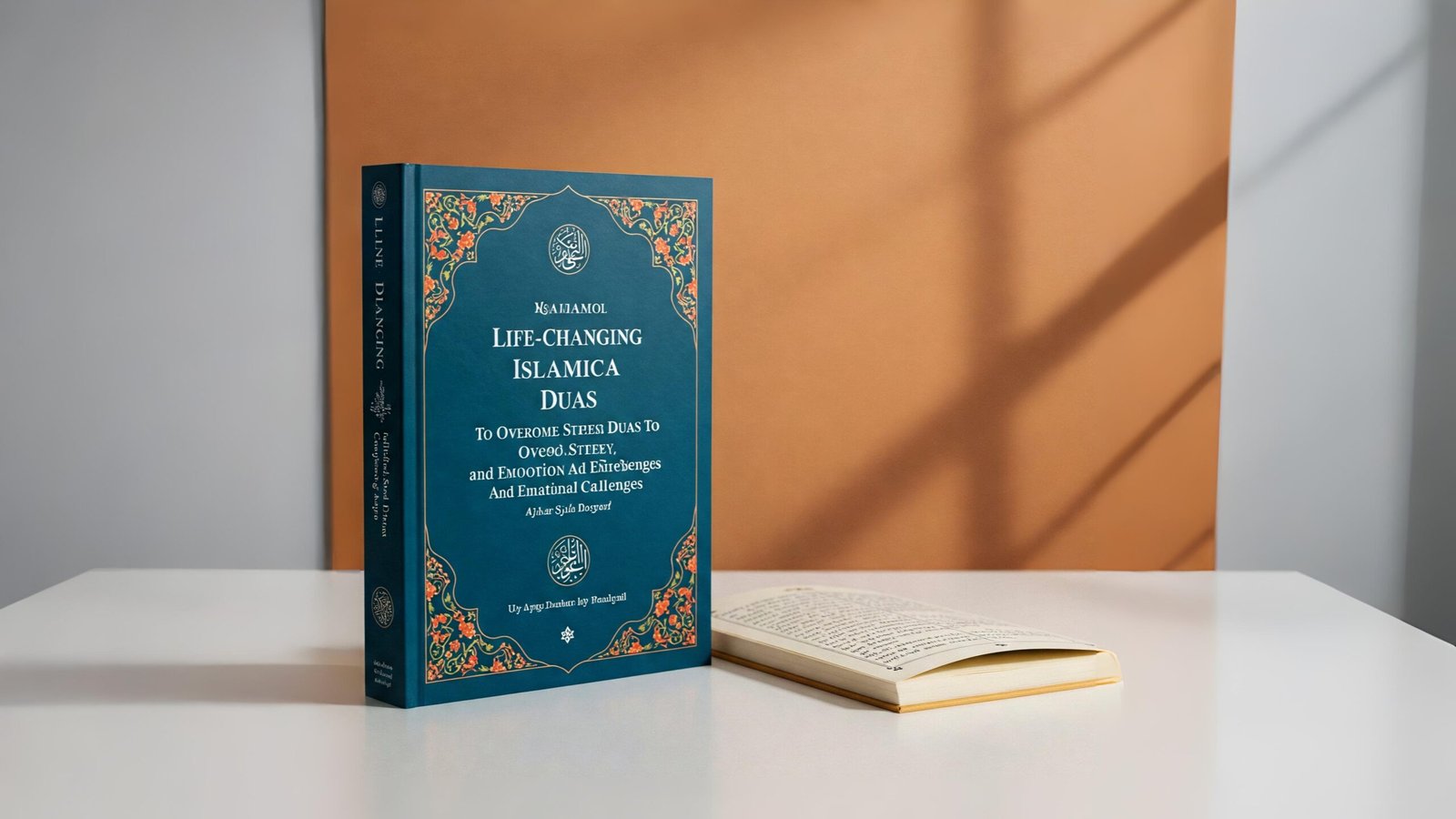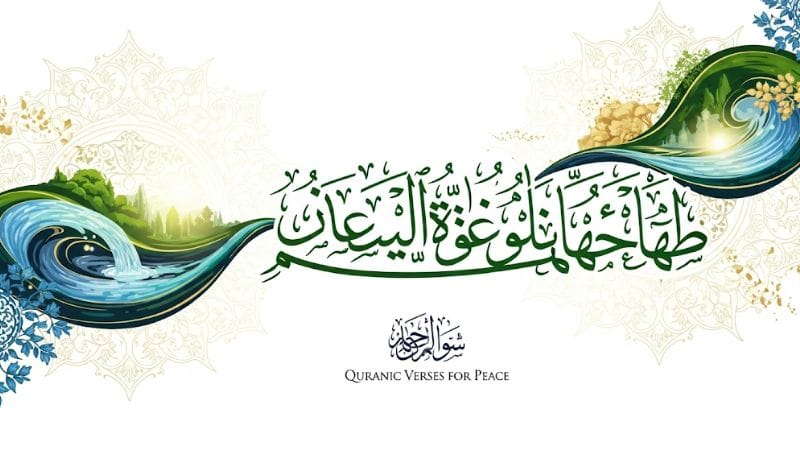In today’s fast-paced world, stress, anxiety, and emotional challenges are common struggles that can weigh heavily on our hearts and minds. For Muslims, turning to Allah (SWT) through dua (supplication) offers a profound source of comfort, strength, and healing. The Quran and Hadith provide a treasure trove of duas that address emotional distress, guiding believers toward peace and resilience. This comprehensive guide explores life-changing Islamic duas to overcome stress, anxiety, and emotional challenges, offering practical tips, spiritual insights, and resources to help you navigate life’s difficulties with faith and tranquility.

Introduction: Finding Peace Through Dua
The Quran reminds us, “Indeed, with the remembrance of Allah, hearts find rest” (Surah Ar-Ra’d 13:28). Dua is a powerful act of worship that connects a believer directly to Allah (SWT), offering solace in times of distress. Whether you’re grappling with anxiety, heartbreak, or overwhelming stress, reciting duas with sincerity can lighten your burdens and restore hope. The Prophet Muhammad (PBUH) taught us numerous supplications to seek Allah’s help, emphasizing that no challenge is too great when entrusted to the Most Merciful.
In this article, we’ll cover:
- Powerful duas to alleviate stress, anxiety, and emotional pain, with Arabic text, transliteration, and translation.
- The spiritual and psychological benefits of supplicating during tough times.
- Practical ways to incorporate duas into your daily routine.
- Recommended resources, including books, apps, and online courses, to deepen your understanding.
- Reviews, ratings, and fee structures for premium Islamic learning tools.
- SEO tips for writing a blog post about duas to maximize reach.
- Answers to common questions about using duas for emotional healing.
Whether you’re seeking relief from daily stressors or navigating deeper emotional challenges, this guide will empower you to find peace through the transformative power of dua.
Why Duas Are Essential for Emotional Well-Being
The Spiritual Power of Dua
Dua is described as “the weapon of the believer” (Al-Tirmidhi), a direct means of seeking Allah’s help and mercy. The Quran assures, “And your Lord says, ‘Call upon Me; I will respond to you’” (Surah Ghafir 40:60). When facing stress or anxiety, turning to Allah through dua reinforces tawakkul (trust in Allah), reminding us that He is Al-Mujeeb (The Responder) and As-Salaam (The Source of Peace).
The Prophet (PBUH) often turned to dua during moments of distress, setting an example for his Ummah. For instance, when faced with difficulties, he would say, “There is no power or strength except with Allah” (Sahih Bukhari). This practice highlights dua as a spiritual anchor that steadies the heart amidst life’s storms.
Psychological and Emotional Benefits
Reciting duas has scientifically backed benefits for mental health. Studies show that prayer and mindfulness practices, like dhikr (remembrance of Allah), reduce cortisol levels, alleviate anxiety, and improve emotional resilience. By focusing on Allah’s mercy and power, duas help believers reframe negative thoughts, foster gratitude, and cultivate inner peace. The rhythmic recitation of Arabic supplications can also have a calming effect, similar to meditation.
Read more
Life-Changing Duas for Stress, Anxiety, and Emotional Challenges
Below are some of the most effective duas for overcoming emotional distress, complete with their Arabic text, transliteration, translation, and context. These supplications are drawn from the Quran and authentic Hadith, ensuring their reliability and spiritual potency.
1. Dua for Relief from Anxiety and Grief
This dua was taught by the Prophet (PBUH) to alleviate worry, sadness, and distress.
Arabic:اللَّهُمَّ إِنِّي أَعُوذُ بِكَ مِنَ الْهَمِّ وَالْحَزَنِ، وَأَعُوذُ بِكَ مِنَ الْعَجْزِ وَالْكَسَلِ، وَأَعُوذُ بِكَ مِنَ الْجُبْنِ وَالْبُخْلِ، وَأَعُوذُ بِكَ مِنْ غَلَبَةِ الدَّيْنِ وَقَهْرِ الرِّجَالِ
Transliteration:Allahumma inni a’udhu bika minal-hammi wal-huzn, wa a’udhu bika minal-‘ajzi wal-kasal, wa a’udhu bika minal-jubni wal-bukhl, wa a’udhu bika min ghalabatid-dayni wa qahrir-rijal.
Translation:O Allah, I seek refuge in You from anxiety and sorrow, from weakness and laziness, from cowardice and stinginess, and from being overwhelmed by debt and the oppression of men.
When to Recite:
- During moments of overwhelming stress or sadness.
- Morning and evening as part of daily adhkar.
2. Dua for Ease and Relief
This short dua is a powerful plea for Allah to make difficulties easier and grant relief.
Arabic:اللَّهُمَّ لا سَهْلَ إِلا مَا جَعَلْتَهُ سَهْلاً، وَأَنْتَ تَجْعَلُ الْحَزْنَ إِذَا شِئْتَ سَهْلاً
Transliteration:Allahumma la sahla illa ma ja‘altahu sahlan, wa anta taj‘alul-hazna idha shi’ta sahlan.
Translation:O Allah, there is no ease except in that which You have made easy, and You make the difficulty, if You will, easy.
When to Recite:
- When facing challenging situations, such as exams, work stress, or personal struggles.
- Before starting a difficult task.
3. Dua of Prophet Yunus (AS)
This dua was recited by Prophet Yunus (AS) while in the belly of the whale, demonstrating the power of seeking Allah’s help in the darkest moments.
Arabic:لا إِلَٰهَ إِلَّا أَنْتَ سُبْحَانَكَ إِنِّي كُنْتُ مِنَ الظَّالِمِينَ
Transliteration:La ilaha illa anta subhanaka inni kuntu minaz-zalimin.
Translation:There is no deity except You; exalted are You. Indeed, I have been of the wrongdoers.
When to Recite:
- During times of despair or feeling trapped by circumstances.
- As part of daily dhikr for spiritual protection.
Context: The Quran states, “And [mention] the man of the fish, when he went off in anger and thought that We would not decree [anything] upon him. And he called out within the darknesses, ‘There is no deity except You; exalted are You. Indeed, I have been of the wrongdoers.’ So We responded to him and saved him from the distress. And thus do We save the believers” (Surah Al-Anbiya 21:87-88).
4. Dua for Tranquility of the Heart
This dua seeks Allah’s guidance and peace for a troubled heart.
Arabic:رَبِّ اشْرَحْ لِي صَدْرِي وَيَسِّرْ لِي أَمْرِي
Transliteration:Rabbishrah li sadri wa yassir li amri.
Translation:My Lord, expand for me my breast [with assurance] and ease for me my task.
When to Recite:
- When feeling overwhelmed or emotionally constricted.
- Before important conversations or decisions.
Context: This dua was recited by Prophet Musa (AS) when tasked with confronting Pharaoh (Surah Taha 20:25-26).
5. Dua for Protection from Harm and Anxiety
This dua seeks Allah’s protection from all forms of harm, including emotional distress.
Arabic:بِسْمِ اللَّهِ الَّذِي لا يَضُرُّ مَعَ اسْمِهِ شَيْءٌ فِي الأَرْضِ وَلا فِي السَّمَاءِ وَهُوَ السَّمِيعُ الْعَلِيمُ
Transliteration:Bismillahil-ladhi la yadurru ma‘a ismihi shay’un fil-ardi wala fis-sama’i wahuwas-sami‘ul-‘alim.
Translation:In the name of Allah, with whose name nothing on earth or in heaven can cause harm, and He is the All-Hearing, the All-Knowing.
When to Recite:
- Three times in the morning and evening for comprehensive protection.
- When feeling anxious about potential harm or uncertainty.
Practical Tips for Incorporating Duas into Your Life
To make duas a consistent source of emotional support, try these strategies:
- Create a Dua Routine: Set aside time each morning and evening to recite duas from the daily adhkar. Use a prayer app like Muslim Pro to stay on track.
- Memorize Key Duas: Start with short supplications like the Dua for Ease and gradually learn longer ones like the Dua for Anxiety and Grief.
- Combine with Dhikr: Pair duas with dhikr phrases like “SubhanAllah” or “La hawla wa la quwwata illa billah” to enhance mindfulness.
- Practice Mindful Recitation: Reflect on the meaning of each dua as you recite it, focusing on Allah’s attributes like Ar-Rahman (The Most Compassionate).
- Keep a Dua Journal: Write down your favorite duas and note how they impact your emotional state over time.
- Seek Professional Support: If anxiety or emotional challenges persist, combine duas with therapy from a culturally sensitive counselor.
The Role of Tawakkul in Emotional Healing
While duas are powerful, they work best when paired with tawakkul (complete trust in Allah’s plan). The Quran advises, “And whoever relies upon Allah – then He is sufficient for him” (Surah At-Talaq 65:3). Practicing tawakkul involves:
- Surrendering Control: Accept that some outcomes are beyond your control and trust Allah’s wisdom.
- Taking Action: Make practical efforts (e.g., seeking therapy or improving self-care) while relying on Allah for results.
- Staying Patient: Emotional healing takes time, so persevere in dua and trust Allah’s timing.
By combining duas with tawakkul, you create a holistic approach to overcoming stress and anxiety.
Recommended Resources for Learning Duas
To deepen your knowledge of duas for emotional well-being, explore these highly rated resources:
1. Books
- “Fortress of the Muslim” by Sa’id bin Ali bin Wahf Al-Qahtani
- Description: A compact collection of authentic duas for various situations, including stress and anxiety.
- Rating: 4.8/5 (Amazon reviews).
- Price: $5–$10 (paperback).
- Why Choose It: Portable and easy to use, with Arabic, transliteration, and translation.
- “Healing the Soul: Duas for Spiritual Wellness” by Ibn Qayyim Al-Jawziyya (translated)
- Description: A scholarly work exploring duas and dhikr for emotional and spiritual healing.
- Rating: 4.7/5 (Goodreads).
- Price: $15–$20.
- Why Choose It: Offers deep insights into the psychology of dua.
2. Mobile Apps
- Muslim Pro
- Features: Includes a dua library with audio, translations, and daily reminders.
- Rating: 4.5/5 (App Store).
- Price: Free; Premium subscription at $9.99/year.
- Review: “The dua section is perfect for managing stress. The audio helps with pronunciation” (user review).
- Dua & Azkar
- Features: A dedicated app for duas and dhikr, with categories for anxiety and emotional challenges.
- Rating: 4.6/5 (Google Play).
- Price: Free with ads; ad-free version at $4.99.
- Review: “Simple and focused. Great for quick access to duas during tough moments” (user review).
3. Online Courses
- Bayyinah Institute: The Power of Dua
- Description: A free course exploring the spiritual and practical aspects of dua.
- Rating: 4.9/5 (student feedback).
- Price: Free.
- Why Choose It: Accessible and taught by experienced instructors.
- Al-Kauthar Institute: Emotional Resilience Through Islamic Practices
- Description: A paid course combining duas, dhikr, and Islamic psychology for emotional healing.
- Rating: 4.8/5 (student reviews).
- Price: $120–$200 (varies by region).
- Why Choose It: Comprehensive and interactive, ideal for in-depth learning.
Fee Structure for Premium Resources
| Resource | Type | Price | Notes |
|---|---|---|---|
| Fortress of the Muslim | Book | $5–$10 | Available on Amazon |
| Healing the Soul | Book | $15–$20 | Available at Islamic bookstores |
| Muslim Pro Premium | App | $9.99/year | Ad-free with exclusive content |
| Dua & Azkar Ad-Free | App | $4.99 (one-time) | No subscription required |
| Bayyinah Institute Course | Online Course | Free | Donations encouraged |
| Al-Kauthar Resilience Course | Online Course | $120–$200 | Discounts for early registration |
Reviews and Ratings of Recommended Resources
Fortress of the Muslim
- Pros: Affordable, comprehensive, and easy to carry.
- Cons: Small font size may be difficult for some readers.
- User Review: “This book is my go-to for stress relief. The duas are well-organized and uplifting” (Amazon, 5/5).
Muslim Pro App
- Pros: User-friendly, multilingual, and includes audio recitations.
- Cons: Free version has ads that can disrupt focus.
- User Review: “The dua reminders help me stay consistent, especially during anxious moments” (App Store, 4/5).
Bayyinah Institute Course
- Pros: Free, high-quality content, and accessible to all levels.
- Cons: Requires self-paced commitment.
- User Review: “This course deepened my connection to dua. Highly recommend for spiritual growth” (Student feedback, 5/5).
SEO Tips for Writing a Blog Post About Duas
To ensure your blog post ranks well on search engines and reaches a wide audience, follow these SEO best practices:
- Target Relevant Keywords:
- Primary keyword: “Islamic duas for stress and anxiety”
- Secondary keywords: “duas for emotional healing,” “Islamic supplications for peace,” “overcome anxiety with dua.”
- Use keywords in the title, meta description, headings, and content (1–2% keyword density).
- Craft a Compelling Meta Description:
- Example: “Discover life-changing Islamic duas to overcome stress, anxiety, and emotional challenges. Learn their meanings, benefits, and practical tips for daily use.”
- Use Structured Headings:
- Use H1 for the main title, H2 for major sections (e.g., “Life-Changing Duas”), and H3 for subsections (e.g., specific duas).
- This improves readability and SEO.
- Include Internal and External Links:
- Link to related blog posts on your site (e.g., “How to Practice Tawakkul” or “Benefits of Dhikr for Mental Health”).
- Reference credible sources like Quran.com or Sunnah.com for authenticity.
- Add Engaging Visuals:
- Include images of Islamic art, calligraphy, or serene nature scenes.
- Use alt text (e.g., “Arabic text of Dua for Relief from Anxiety”).
- Write for Your Audience:
- Address reader pain points, such as feeling overwhelmed or seeking emotional peace.
- Use a warm, empathetic tone to build trust.
- Encourage Interaction:
- End with a call-to-action (e.g., “Share your favorite dua for stress relief in the comments!”).
- Add social sharing buttons to boost engagement.
Common Questions About Duas for Emotional Challenges
Can I Make Dua in My Own Words?
Yes, Allah (SWT) understands all languages and intentions. While Quranic and Prophetic duas carry special blessings, you can also supplicate in your native language, especially when expressing personal struggles.
How Often Should I Recite These Duas?
Aim to recite duas for stress and anxiety as part of your morning and evening adhkar. Additionally, turn to them whenever you feel overwhelmed. Consistency and sincerity are key.
What If I Don’t Feel Immediate Relief?
Emotional healing is a journey. Continue reciting duas with patience and trust in Allah’s plan. Combine supplications with practical steps like exercise, healthy eating, or professional counseling for holistic well-being.
Conclusion: Embrace Peace Through Dua
The duas shared in this guide are more than words—they are a lifeline to Allah’s mercy, offering comfort and strength in the face of stress, anxiety, and emotional challenges. By incorporating these supplications into your daily life, practicing tawakkul, and exploring recommended resources, you can find lasting peace and resilience. The Prophet (PBUH) said, “No one who is afflicted by anxiety and grief and says [the Dua for Anxiety and Grief] but that Allah will remove his distress and replace it with joy” (Ahmad).
Start your journey today by memorizing one dua and reciting it with full trust in Allah (SWT). Share this guide with others to spread the healing power of dua, and explore our recommended books, apps, and courses for deeper learning. Let us know in the comments which dua resonates with you most!
Call-to-Action: Subscribe to our newsletter for more Islamic content, and download our free Dua for Emotional Healing PDF to keep these supplications handy. May Allah (SWT) grant you peace, ease your burdens, and fill your heart with tranquility. Ameen.














Post Comment